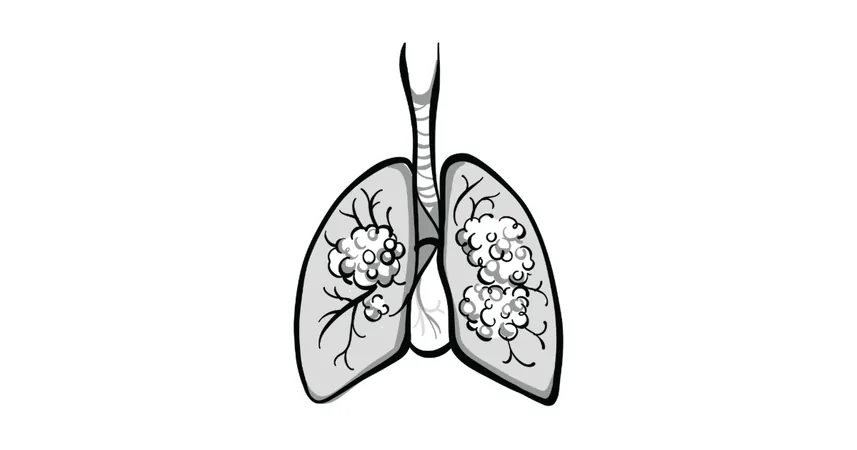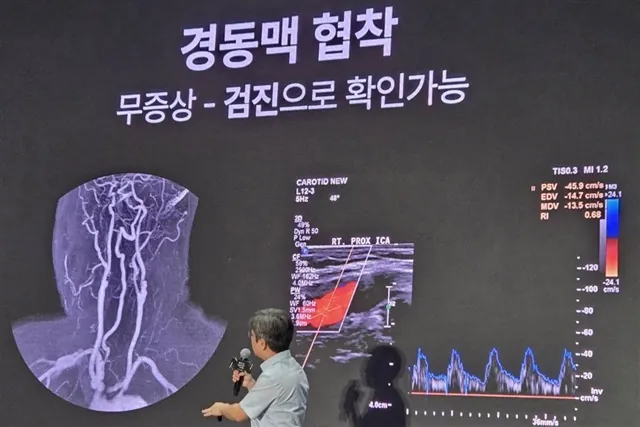
Revolutionizing Lung Cancer Treatment: The Essential Role of Biomarker Testing
2025-08-27
Author: Nur
The New Era of Lung Cancer Diagnosis
Lung cancer diagnosis has dramatically transformed, with bronchoscopic techniques taking center stage as the go-to method for obtaining tissue samples. This shift is accompanied by the critical necessity of comprehensive biomarker testing tailored for non-small cell lung cancer (NSCLC), ensuring personalized treatment strategies thrive. The connection between these advancements? The demand for reliable, sufficient tissue samples to guide effective treatment plans.
Navigating Change: The Experts Weigh In
Dr. Martin F. Dietrich, an oncologist at the US Oncology Network Cancer Care Centers, emphasizes the indispensable role of tissue biopsy in accurately staging lung cancer and understanding tumor-specific molecular characteristics. He asserts that comprehensive biomarker testing should be integral at virtually every disease stage, transforming the earlier practice of histological diagnosis followed by therapy evaluation into a model that integrates targeted therapies right from the onset.
The Preferred Biopsy Methods: A Panel's Insight
A multidisciplinary expert panel from the American Association of Bronchology and Interventional Pulmonology recently published guidelines endorsing endobronchial ultrasound (EBUS) as a safer, minimally invasive alternative to CT-guided biopsies. Dr. Abhinav Agrawal, a leading voice in the report, notes that while EBUS is less invasive, its efficiency in ensuring diagnostic and molecular yield is comparable to more invasive techniques. This insight reinforces the push for prioritizing endobronchial approaches.
Fighting Inadequacy: A Major Hurdle
The lack of sufficient tissue remains a significant barrier for lung cancer patients. Dr. Agrawal highlights that while traditional methods like navigational bronchoscopy and needle biopsy yield 70-80%, advancements such as robotic bronchoscopy could surpass a 90% diagnostic yield. Yet, Dr. Dietrich warns that in approximately 20-30% of cases, patients face inadequate tissue for advanced genetic testing, complicating treatment decisions essential for managing systemic disease.
Time is of the Essence: Managing Biomarker Testing Delays
With the rising use of targeted therapies from early-stage lung cancer, delays in biomarker testing—sometimes ranging from 6 to 8 weeks—pose risks to timely intervention. Efficiently coordinating with surgical teams is vital to avoid disrupting the treatment timeline, especially for patients in the perioperative setting.
Leveraging New Techniques: Reflex Testing and Liquid Biopsies
The latest NCCN guidelines advocate for wide-ranging genomic testing in advanced NSCLC, including critical biomarkers like EGFR and ALK, even in early stages. Dr. Agrawal promotes an approach where biomarker testing gets initiated even before biopsies are performed, expediting the timeline from diagnosis to treatment. Additionally, the potential of liquid biopsies to analyze circulating tumor DNA presents a faster alternative, especially crucial for advanced-stage patients.
Redefining Treatment Protocols: From Histology to Molecular Guidance
The dynamics of lung cancer treatment are shifting. As targeted therapies and immunotherapies gain traction in early-stage applications, understanding molecular characteristics is becoming as significant as traditional histological classifications. Dr. Dietrich illustrates the growing importance of biomarkers in determining treatment paths, recommending ultimately a more aggressive, rapid approach toward biomarker testing.
Building a Collaborative Approach for Better Outcomes
Collaborations between pulmonologists, thoracic surgeons, and oncologists are critical for effective biomarker testing. Dr. Agrawal advocates for a comprehensive treatment plan that utilizes the latest diagnostic tools and ensures all patients receive appropriate evaluations to inform personalized therapy. In academic settings, multidisciplinary approaches have already streamlined the process, but the challenge remains for community practices.
Looking Ahead: The Future of Lung Cancer Diagnosis and Care
The ongoing evolution of technologies, from innovative biopsy methods to robust biomarker testing, seeks to align diagnostic practices with the strides made in targeted therapies. As Dr. Agrawal concluded, the mission remains clear: to enhance patient outcomes by ensuring that diagnostic approaches keep pace with advancements in treatment.




 Brasil (PT)
Brasil (PT)
 Canada (EN)
Canada (EN)
 Chile (ES)
Chile (ES)
 Česko (CS)
Česko (CS)
 대한민국 (KO)
대한민국 (KO)
 España (ES)
España (ES)
 France (FR)
France (FR)
 Hong Kong (EN)
Hong Kong (EN)
 Italia (IT)
Italia (IT)
 日本 (JA)
日本 (JA)
 Magyarország (HU)
Magyarország (HU)
 Norge (NO)
Norge (NO)
 Polska (PL)
Polska (PL)
 Schweiz (DE)
Schweiz (DE)
 Singapore (EN)
Singapore (EN)
 Sverige (SV)
Sverige (SV)
 Suomi (FI)
Suomi (FI)
 Türkiye (TR)
Türkiye (TR)
 الإمارات العربية المتحدة (AR)
الإمارات العربية المتحدة (AR)